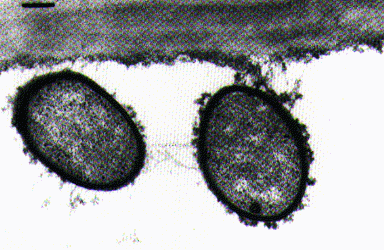
As the national push for alternative energy sources heats up, researchers at the University of Rochester have for the first time identified how genes responsible for biomass breakdown are turned on in a microorganism that produces valuable ethanol from materials like grass and cornstalks.
Waste products such as grass clippings and wood chips—once thought too difficult to turn into ethanol—may soon be fodder for hungry, gene-tweaked bacteria.
The findings in today’s Proceedings of the National Academy of Sciences may empower scientists to engineer ethanol-producing super-organisms that can make clean-burning fuel from the nation’s one billion unused tons of yearly biomass production.